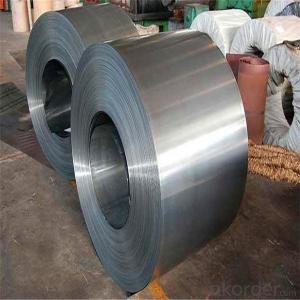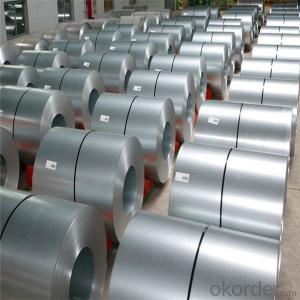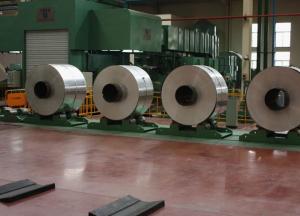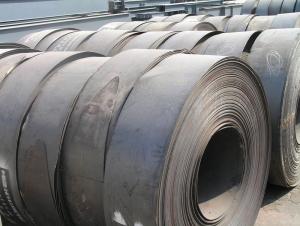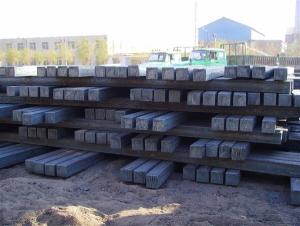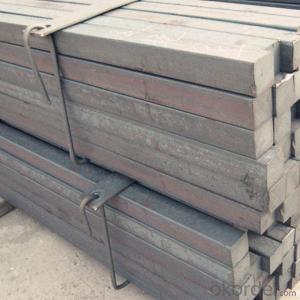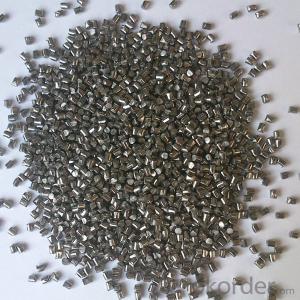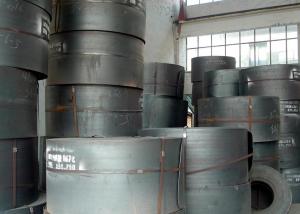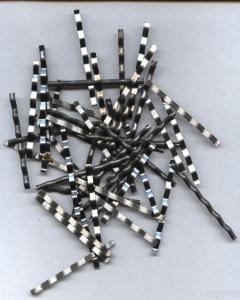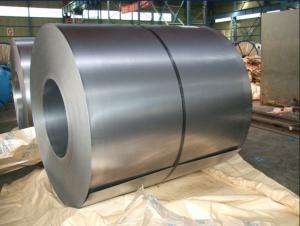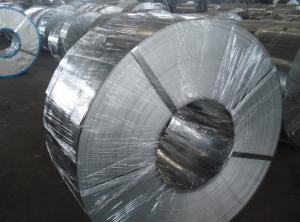Prime Quality SPCD Cold Rolled Steel Sheet/Coil
- Loading Port:
- China main port
- Payment Terms:
- TT OR LC
- Min Order Qty:
- 20 m.t.
- Supply Capability:
- 50000 m.t./month
OKorder Service Pledge
OKorder Financial Service
You Might Also Like
Item specifice
Prime Quality SPCC Cold Rolled Steel Sheet/coil
Usage: Widely used to appliance,automobile industry or other decoration usage.
Certificate: ISO9001
Packing Details: Wrapped by water proof paper and plastic film.Covered with iron sheet,strapped by steel strips to protect the damage under transportation.
Details please check following format
Brief Introduction
Cold rolled steel coil is steel that has been worked below its recrystallization temperature by passing it between a pair of rollers. Recrystallization temperature is the temperature at which grains in the lattice structure of the metal have been rearranged, leaving it free of strain and deformations. Cold rolled steel coil is pre-treated before being cold rolled with a process known as pickling, which uses strong acids to remove scale and other impurities. The cold rolled steel coil is then passed through rollers to reduce its thickness. Most cold rolling takes place in multiple passes and as the size of the cold rolled steel coil is further reduced, its strength and hardness both increase, but its ductility decreases. After cold rolling, heating the metal up in a process known as annealing can restore some of its ductility. The final cold rolled steel coil may be manufactured in the form of sheets, strips, bars, or other forms.
Products Picture:
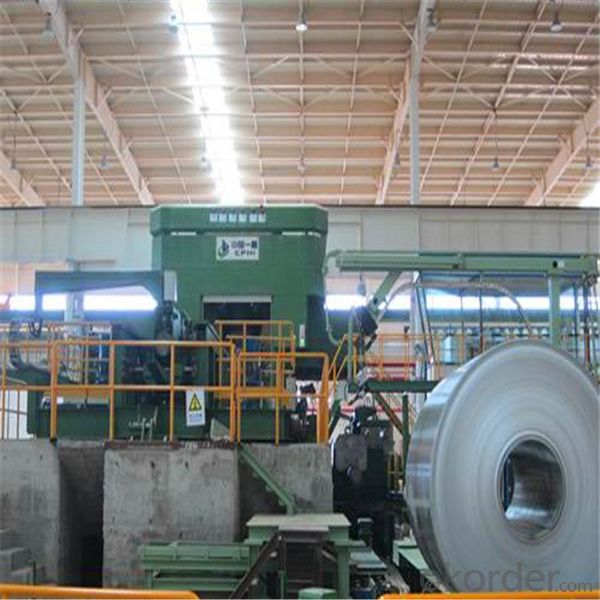
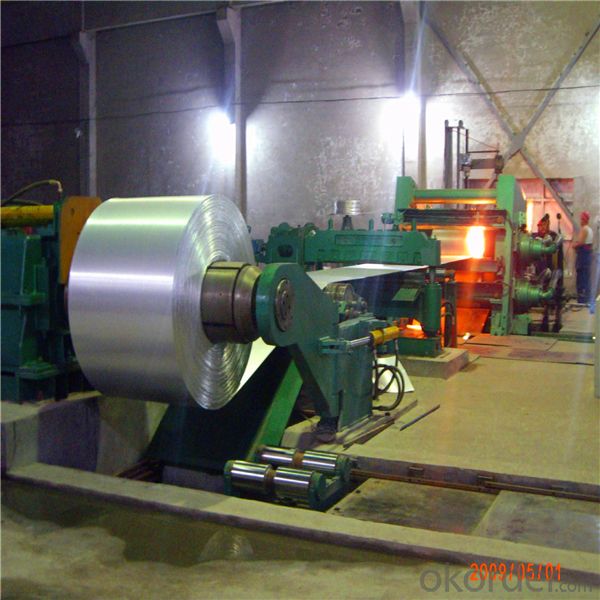
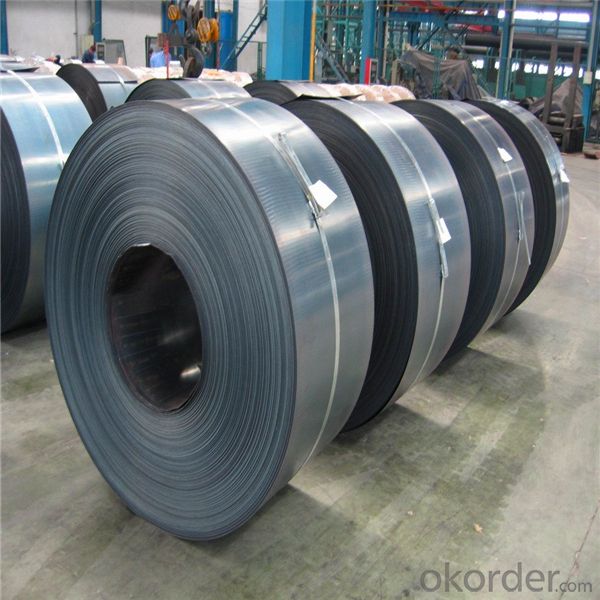
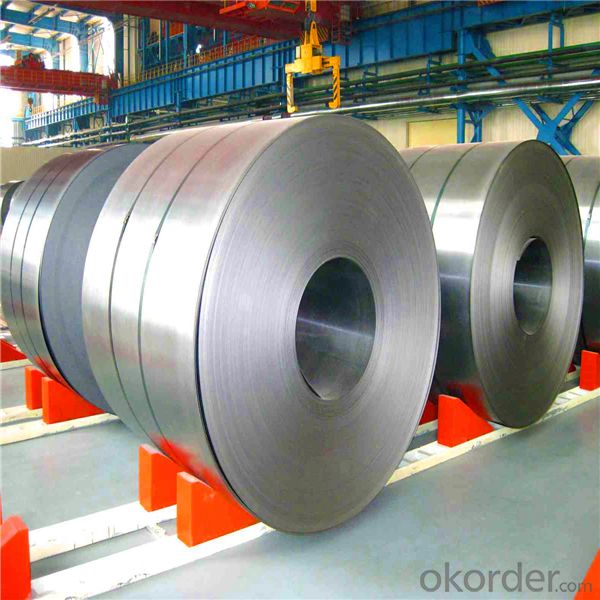
1)Size: Thickness 0.4mm to 3.0mm, width 914mm to 1500mm.
2)Length: Any size or in coil
3)Material grade: SPCC, SPCC-SD
4)Standard: GB / JIS / DIN
5)Package: Waterproof paper with steel pallet.
6)Delivery time: Within 15days.
7)Passed ISO9001 CERTIFICATE
- Q:What are the different types of steel sheets and their uses in the aerospace industry?
- In the aerospace industry, there are several types of steel sheets that are commonly used. Some of these include: 1. Stainless Steel Sheets: These sheets are highly resistant to corrosion, making them ideal for parts that are exposed to high humidity or extreme temperatures. They are commonly used in aircraft structures, engine components, and exhaust systems. 2. Carbon Steel Sheets: Carbon steel sheets are known for their strength and durability. They are often used in the manufacturing of landing gears, wing spars, and structural components where high strength is required. 3. Alloy Steel Sheets: Alloy steel sheets are made by adding various elements to carbon steel, such as nickel, chromium, or molybdenum. These additions enhance the strength, toughness, and heat resistance of the steel. They are commonly used in critical aerospace components like turbine blades, shafts, and fasteners. 4. Tool Steel Sheets: Tool steel sheets are specifically designed for their exceptional hardness, wear resistance, and ability to retain their shape at high temperatures. These sheets are commonly used in the production of cutting tools, dies, and molds in the aerospace industry. Overall, the different types of steel sheets used in the aerospace industry offer a range of properties and characteristics that are crucial for various applications, ensuring the structural integrity, durability, and performance of aircraft components.
- Q:What are the different types of steel bars used in construction?
- There are several types of steel bars commonly used in construction, including mild steel bars, deformed steel bars, high-strength deformed steel bars, and epoxy-coated steel bars. Each type has specific properties and uses, but they all provide strength and reinforcement to various structural elements in buildings and other construction projects.
- Q:What are the safety considerations when working with steel products?
- Some safety considerations when working with steel products include wearing appropriate personal protective equipment (PPE) such as gloves, safety glasses, and steel-toed boots to prevent injuries from cuts, sparks, and falling objects. It is also important to use the correct tools and equipment for the task at hand, as well as ensuring that they are in good working condition. Adequate training and knowledge of proper handling techniques, such as lifting techniques and using mechanical aids, can help prevent strain and musculoskeletal injuries. Additionally, proper ventilation and respiratory protection may be necessary when working with steel products that produce fumes or dust. Regular maintenance and inspection of equipment and work areas can help identify and address potential hazards, ensuring a safe working environment.
- Q:What are the different types of steel bolts and their uses?
- There are several different types of steel bolts, each designed for specific uses. Some common types include hex bolts, carriage bolts, and anchor bolts. Hex bolts are used for general applications and have a hexagonal head. Carriage bolts have a smooth, rounded head and are often used in woodworking applications. Anchor bolts are used to secure structures to concrete and come in various shapes, such as L-shaped or J-shaped. Other types of steel bolts include eye bolts, U-bolts, and flange bolts, each with their own unique purposes and applications.
- Q:How is steel tubing used in manufacturing?
- Steel tubing is commonly used in manufacturing for various applications such as structural support, fluid transportation, and conveying materials. It is often used in the construction of buildings, bridges, and machinery due to its strength, durability, and resistance to corrosion. Additionally, steel tubing is used in the production of automobiles, appliances, and various industrial equipment, where it provides a reliable and efficient means of conveying fluids, gases, and materials. Overall, steel tubing plays a crucial role in the manufacturing industry by providing a versatile and cost-effective solution for numerous applications.
- Q:How are steel profiles used in the construction of underground tunnels?
- Steel profiles are commonly used in the construction of underground tunnels as they provide structural support and reinforcement. These profiles are used to create the tunnel lining, which helps to prevent the collapse of the surrounding soil or rock. Additionally, steel profiles can also be used as tunnel ribs or arches, distributing the load and ensuring stability. Overall, steel profiles play a crucial role in enhancing the strength and longevity of underground tunnels.
- Q:How do steel products contribute to the construction of theme-based adventure parks?
- Steel products play a crucial role in the construction of theme-based adventure parks due to their strength, durability, and versatility. Steel is used in the framework and support structures of roller coasters, water slides, and other thrill rides, ensuring the safety and stability of these attractions. Additionally, steel is used in the fabrication of various park fixtures, such as entrance arches, railings, and signage, adding to the theme and aesthetics of the park. Overall, steel products provide the necessary infrastructure and creative elements that make theme-based adventure parks exciting and visually appealing.
- Q:How is steel used in the production of industrial valves?
- Steel is commonly used in the production of industrial valves due to its strength, durability, and resistance to high temperatures and pressures. It provides the necessary structural integrity to withstand the demanding conditions these valves are subjected to. Steel can be used in various valve components such as bodies, bonnets, stems, and discs, ensuring reliable operation and longevity in industrial applications.
- Q:What are the different types of steel springs and their applications?
- There are several types of steel springs commonly used in various applications. Compression springs are used to resist compressive forces and are found in automotive suspensions, mattresses, and mechanical devices. Extension springs are designed to resist stretching forces and are commonly used in garage doors, trampolines, and industrial equipment. Torsion springs provide rotational force and are found in door hinges, clothespins, and various mechanical assemblies. Additionally, flat springs are used for applications that require flexibility, such as automotive clutches and electrical switches. These different types of springs offer varying degrees of strength, durability, and flexibility, allowing them to be utilized in a wide range of industries.
- Q:How is steel used in the production of musical instruments?
- Steel is commonly used in the production of musical instruments to create components such as strings, keys, and valves. It provides strength, durability, and a clear, resonant sound, making it ideal for instruments like guitars, pianos, trumpets, and saxophones. Additionally, steel can be shaped and molded into various forms, allowing for intricate designs and precise tuning capabilities in instruments.
1. Manufacturer Overview |
|
|---|---|
| Location | |
| Year Established | |
| Annual Output Value | |
| Main Markets | |
| Company Certifications | |
2. Manufacturer Certificates |
|
|---|---|
| a) Certification Name | |
| Range | |
| Reference | |
| Validity Period | |
3. Manufacturer Capability |
|
|---|---|
| a)Trade Capacity | |
| Nearest Port | |
| Export Percentage | |
| No.of Employees in Trade Department | |
| Language Spoken: | |
| b)Factory Information | |
| Factory Size: | |
| No. of Production Lines | |
| Contract Manufacturing | |
| Product Price Range | |
Send your message to us
Prime Quality SPCD Cold Rolled Steel Sheet/Coil
- Loading Port:
- China main port
- Payment Terms:
- TT OR LC
- Min Order Qty:
- 20 m.t.
- Supply Capability:
- 50000 m.t./month
OKorder Service Pledge
OKorder Financial Service
Similar products
New products
Hot products
Related keywords
